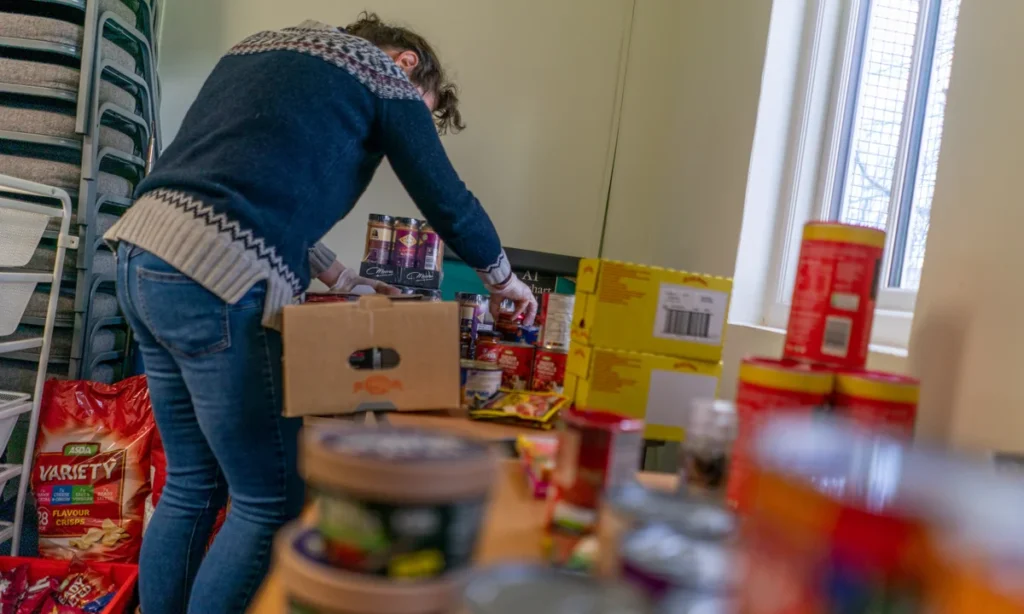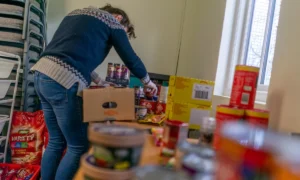
A new £2 million fund has been established to assist underprivileged families with the cost of living in response to the mounting financial strain people all throughout the United Kingdom are under. This much-needed respite comes at a time when many are struggling to meet their basic expenses due to rising food prices and utility bills. The fund provides practical assistance to low-income households to meet their basic needs, such as food, utilities, school supplies, and housing basics.
About the £2 million support fund?
The £2 million support fund is a component of a larger project by local authorities and non-profit groups meant to help underprivileged families navigating difficult circumstances. Local governments, community groups, and social agencies already closely interacting with families in need will distribute the money.
This money can be used in several ways for homes, including:
Emergency culinary vouchers
The program provides energy top-ups and utility bill help, school uniforms and supplies for children, basic household items like bedding or white goods, and temporary lodging for people at danger of homelessness.
The fund seeks to give families on the verge of catastrophe not only quick relief but also long-term stability by means of focused care.
Why the Fund Is Needed
For low-income families especially, the present economic environment has been somewhat difficult. Rising demand on public services combined with inflation and wage stagnation has produced a perfect storm that drives many families into poverty.
Recent statistics from the Joseph Rowntree Foundation show that almost one in four youngsters living in the United Kingdom are impoverished. Rising prices for basics including food, clothes, and energy mean that many parents are being compelled to make impossible decisions between heating their houses or feeding their children.
By providing families with a lifeline and enabling them to keep a minimum quality of living and prevent spiralling into more difficulty, this new fund seeks to ease some of that burden.
Who is eligible?
Families who fit particular eligibility requirements and are experiencing financial difficulties can use the £2 million fund. Although every municipal government or administrative agency may have somewhat distinct criteria, the overall guidelines consist of:
– Families with children under 18 – Households receiving Universal Credit, Housing Benefit, or other income-based support
– Households enduring a sudden change in circumstances, such as job loss, sickness, or bereavement
– Families with no recourse to public finances may also be eligible in some situations, especially if there are safeguarding or child welfare problems.
Candidates will need to show proof of their financial circumstances, such as benefit letters or bank statements. With online applications, phone help, and in-person assistance accessible for individuals who need it, local authorities want to make the procedure as straightforward and easily available as feasible.
Application Strategies
Families seeking to apply may contact their local council or visit the council’s website for additional information on how to access the fund. On their websites, some municipalities have created special areas where locals may locate eligibility information, application forms, and support contact numbers.
Families are also navigating the application process, thanks in part to organisations such as Family Action, The Trussell Trust, and Citizens Advice. On behalf of the applicants, they can provide direction, assist in compiling necessary paperwork, and contact local authorities.
Families should act fast, as demand is likely to be strong and funds will be given based on a first-come, first-served policy.
Practical Influence
Many families might find this money to be the difference between stability and disaster. Imagine a single mother attempting to keep her children fed and clothed while working part-time and struggling to pay increasing gas and electricity bills. Alternatively, a family of five who lately lost their main source of income from redundancy and are being threatened with eviction.
The financial aid offered through the £2m fund delivers instant relief. Whether it’s paying for a child’s winter coat or ensuring the heating stays on during a cold snap, these seemingly simple acts of help may have a significant emotional and practical impact.
One family that recently got aid from a similar emergency fund described the experience as “a lifeline.” The assistance enabled them to buy food, maintain their lights, and avoid debt, as unexpected medical expenses had left them with nothing at the end of the month. For many, the comfort was psychological as much as financial—a source of optimism during trying circumstances.
The Part Community Support Plays
Although government money is critical, reaching disadvantaged families depends on community support networks. Often the first to see families in need; faith organisations, food banks, schools, and grassroots organisations can point them to suitable help.
These networks ensure that help is available for those who don’t know where to go. Ensuring that the most disadvantaged families do not slip through the gaps depends on more robust alliances between public and volunteer sectors.
Still Needed: Long-Term Solutions
Although the £2 million fund is a welcome respite for many thousands of families, it is not a permanent fix. Campaigners and organisations have long called for longer-term, sustainable solutions to address poverty and inequality. Including:
Ensuring a genuine living wage for every worker; raising benefit levels to represent the actual cost of living
Funding reasonably priced homes; improving access to childcare and employment help
Although this emergency fund will assist many in the near future, it will also draw attention to the pressing need for more thorough changes in our assistance for families dealing with financial difficulties.
A Request for Action
Please contact your local council or support group promptly if you or someone you know is a family in need. Share fund information on social media, with local businesses, and in schools to make sure it gets to people most in need.
Under difficult circumstances, prompt assistance and community solidarity can significantly impact the situation. Although the £2 million fund is a crucial first step towards offering such assistance, public awareness and group work will help to guarantee its full impact is fulfilled.




